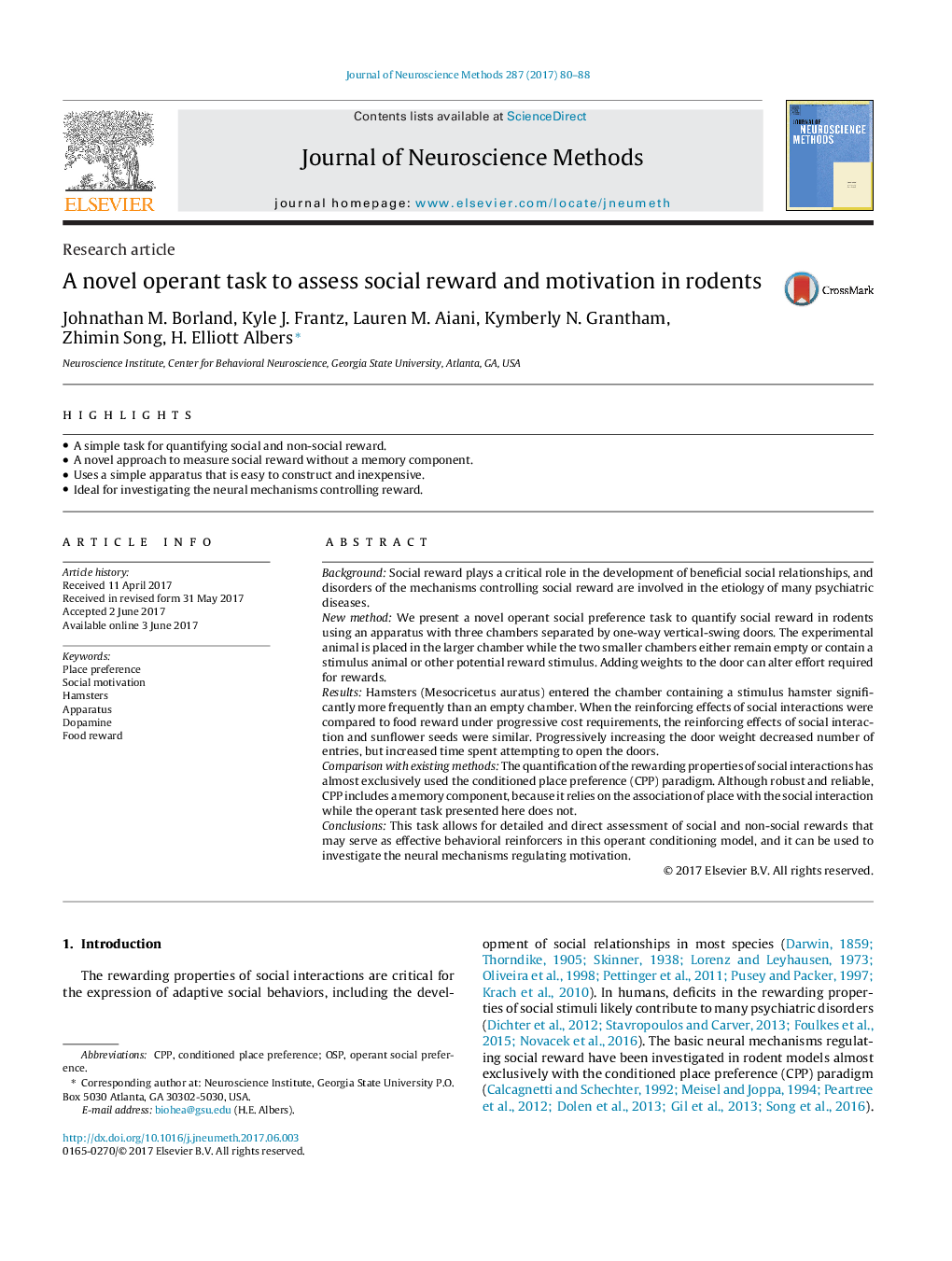| کد مقاله | کد نشریه | سال انتشار | مقاله انگلیسی | نسخه تمام متن |
|---|---|---|---|---|
| 5737132 | 1614582 | 2017 | 9 صفحه PDF | دانلود رایگان |
- A simple task for quantifying social and non-social reward.
- A novel approach to measure social reward without a memory component.
- Uses a simple apparatus that is easy to construct and inexpensive.
- Ideal for investigating the neural mechanisms controlling reward.
BackgroundSocial reward plays a critical role in the development of beneficial social relationships, and disorders of the mechanisms controlling social reward are involved in the etiology of many psychiatric diseases.New methodWe present a novel operant social preference task to quantify social reward in rodents using an apparatus with three chambers separated by one-way vertical-swing doors. The experimental animal is placed in the larger chamber while the two smaller chambers either remain empty or contain a stimulus animal or other potential reward stimulus. Adding weights to the door can alter effort required for rewards.ResultsHamsters (Mesocricetus auratus) entered the chamber containing a stimulus hamster significantly more frequently than an empty chamber. When the reinforcing effects of social interactions were compared to food reward under progressive cost requirements, the reinforcing effects of social interaction and sunflower seeds were similar. Progressively increasing the door weight decreased number of entries, but increased time spent attempting to open the doors.Comparison with existing methodsThe quantification of the rewarding properties of social interactions has almost exclusively used the conditioned place preference (CPP) paradigm. Although robust and reliable, CPP includes a memory component, because it relies on the association of place with the social interaction while the operant task presented here does not.ConclusionsThis task allows for detailed and direct assessment of social and non-social rewards that may serve as effective behavioral reinforcers in this operant conditioning model, and it can be used to investigate the neural mechanisms regulating motivation.
Journal: Journal of Neuroscience Methods - Volume 287, 1 August 2017, Pages 80-88
